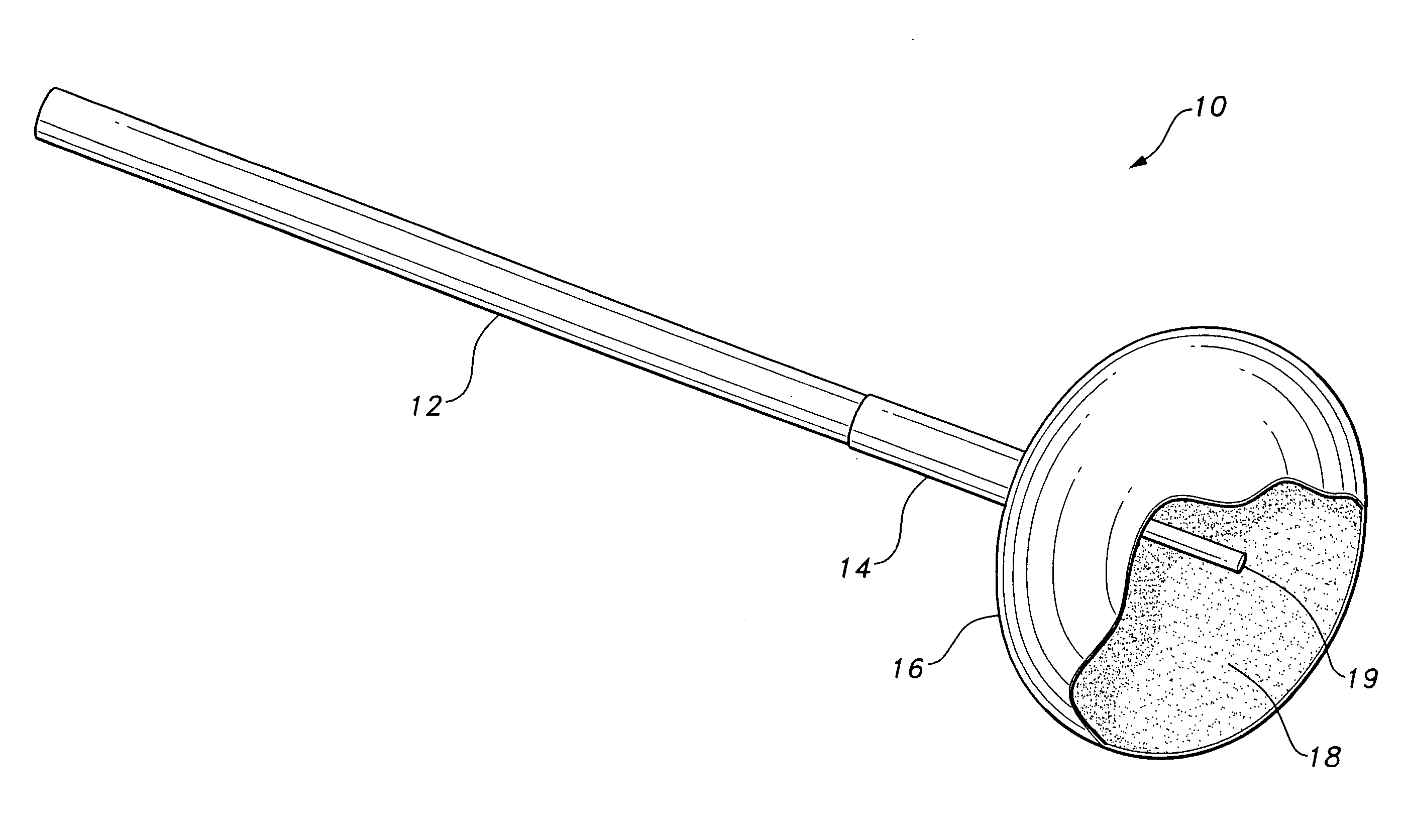Striking member for use with a percussion instrument
a percussion instrument and striking member technology, applied in the field of percussion instruments, can solve the problems of not allowing head flexing or bending, drum sticks and mallets typically not allowing for variation in usage, etc., and achieves the effect of enhancing user's striking speed, reducing strain, and enhancing striking characteristics
- Summary
- Abstract
- Description
- Claims
- Application Information
AI Technical Summary
Benefits of technology
Problems solved by technology
Method used
Image
Examples
Embodiment Construction
[0046]The present invention is directed towards a striking member for use with a percussion instrument. The striking member is a vibration-inducing variation of a conventional unitary or one-piece drum stick, drum mallet or the like, further providing a head which bounces, flexes and / or rebounds upon striking the drum. FIGS. 1A and 1B illustrate a first embodiment of the striking member 10, formed as a mallet for drums, though it should be understood that the drum mallet configuration is shown for exemplary purposes only, and that the striking member 10 may be configured for use with any type of percussion instrument.
[0047]The induced vibration and flexure in the head of the striking member 10 generates enhanced acoustic, striking and rhythmic characteristics, particularly in comparison to conventional, unitary, solid drum sticks and the like, and further allows the user to articulate rhythms with enhanced bounce and / or rebounding through the flexure of the head.
[0048]The usage of s...
PUM
 Login to View More
Login to View More Abstract
Description
Claims
Application Information
 Login to View More
Login to View More - R&D
- Intellectual Property
- Life Sciences
- Materials
- Tech Scout
- Unparalleled Data Quality
- Higher Quality Content
- 60% Fewer Hallucinations
Browse by: Latest US Patents, China's latest patents, Technical Efficacy Thesaurus, Application Domain, Technology Topic, Popular Technical Reports.
© 2025 PatSnap. All rights reserved.Legal|Privacy policy|Modern Slavery Act Transparency Statement|Sitemap|About US| Contact US: help@patsnap.com



